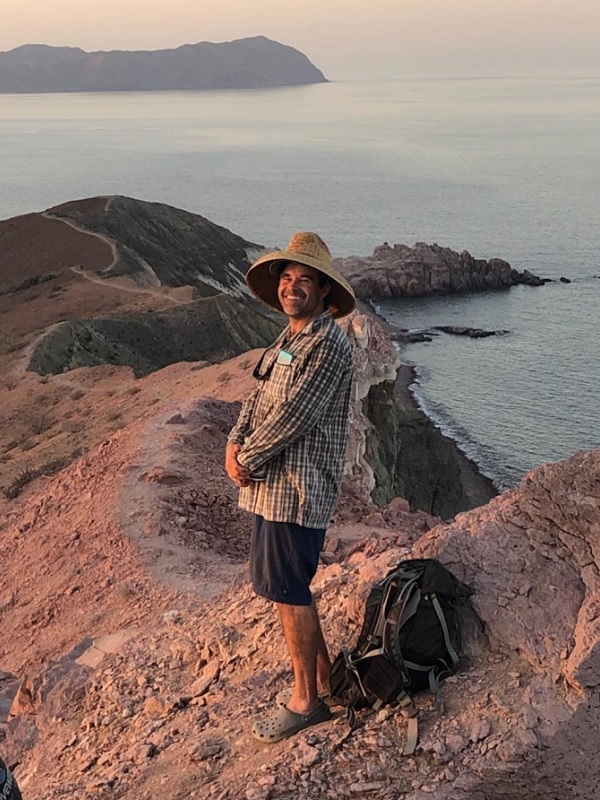CNDDB recently caught up with Dr. Gage Dayton, UC Santa Cruz faculty and Administrative Director of the UCSC Natural Reserves. Dr. Dayton was a tremendous help when our staff updated CNDDB records for Santa Cruz kangaroo rat.
Could you describe your role at UCSC?
I oversee the  UCSC Natural Reserves. My role is to support education and research on our natural reserves. This includes teaching, supporting and conducting research and monitoring, and stewarding the reserves to ensure flora and fauna are protected on our reserves.
UCSC Natural Reserves. My role is to support education and research on our natural reserves. This includes teaching, supporting and conducting research and monitoring, and stewarding the reserves to ensure flora and fauna are protected on our reserves.
What brought you to pursue a career in field biology?
I was exposed to the natural world at a young age through camping and exploring outside. I developed a curiosity about lizards when I was 5 and haven't stopped being intrigued about the natural world since!
Is there a project or study you’ve been a part of that you’re particularly proud of?
That is a hard question. I am most proud about helping provide students with an opportunity to learn about Natural History and how to become a scientist and conservationist. This involves exposing people to nature and teaching them to be critical thinkers.
Do you use CNDDB, if so, how?
Yes, we add data to it and use it to better understand the distribution of rare species in our region.
Any advice for aspiring biologists?
Get out there and observe! The world is an incredible place and understanding and appreciating the natural history of organisms is the first step in asking relevant questions, becoming a conservation biologist, and developing studies that can help us better understand and protect our natural resources. Plus, it is fun! Try to get involved in internships, studies, etc. so that you can gain skills and, importantly, figure out what you are passionate about.
Do you have a favorite plant/animal/natural community you’ve worked with?
Frogs and toads, especially ones that live in drier habitats.
Why should we care about biogeographic data?
Biogeographic data, along with collections, provide a glance at current and historic distributions. This information is important for understanding where species currently exist, where they occurred historically, and where we might be able to reintroduce them in the future.
Many thanks to Dr. Dayton for the interview! We concur, “get out there and observe,” and submit your observations of rare species on our Online Field Survey Form!
